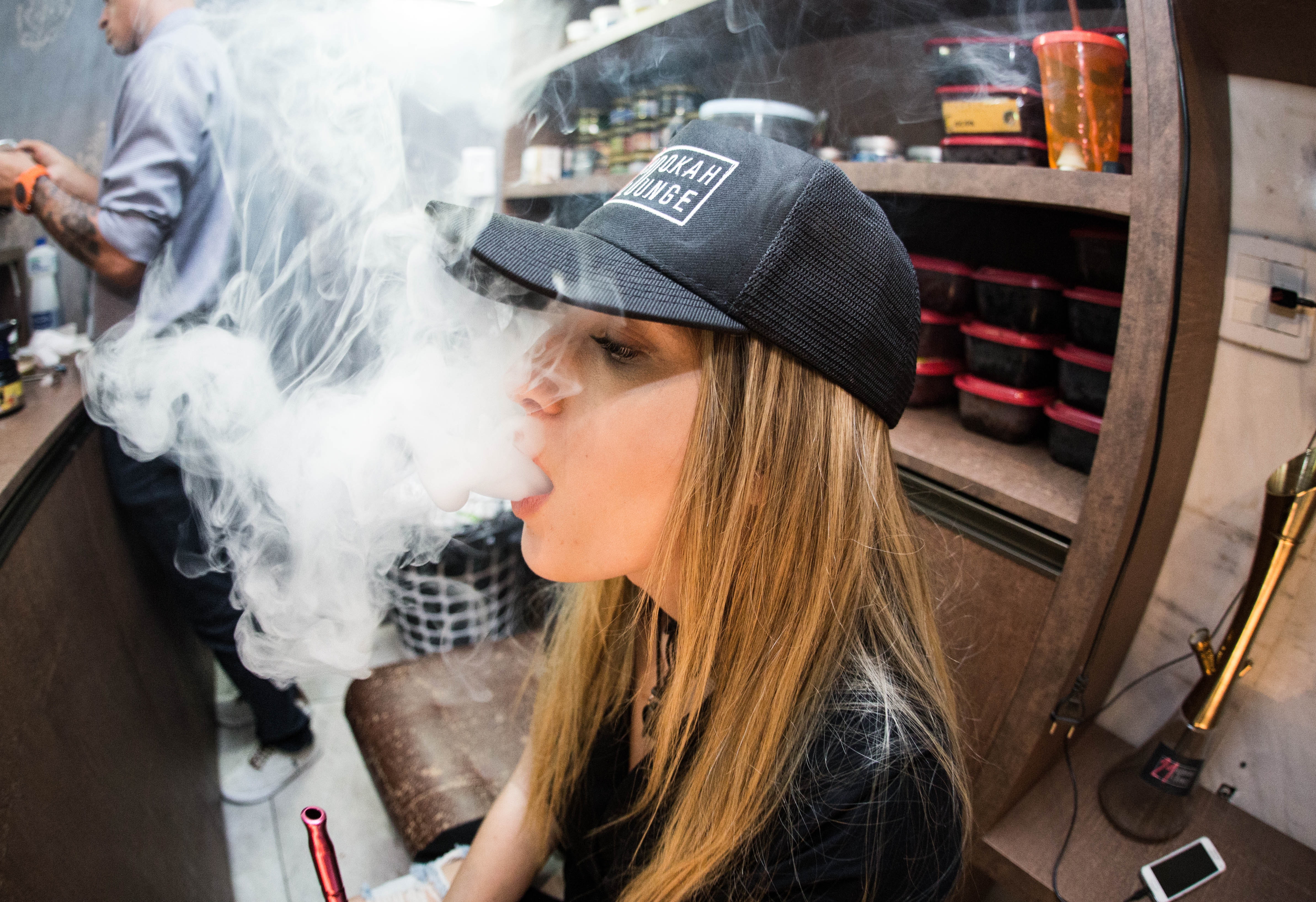Why Canada Could Be Spared From an All-Out Vape Panic

Credit to Author: Lori Fox| Date: Thu, 31 Oct 2019 13:43:57 +0000
Lorax Horne started vaping weed because they thought it would be better for them than smoking joints. Now that vape-related lung injuries have killed 34 and sickened 1,600 people in the U.S., they are rethinking that decision.
“Reading about the weird health problems beginning to be associated with vaping has definitely changed my habits. I stopped buying cartridges or prepackaged, disposable vapes, and now pretty much just vape solventless weed concentrates like rosin,” said Horne, who lives in Nova Scotia. “That, and I've gone back to smoking straight joints.”
The U.S. Center for Disease Control has named the mysterious sickness E-cigarette Vaping Associated Lung Injury, or EVALI. Although doctors first believed the illness—characterized by nausea, gastrointestinal distress, difficulty breathing and respiratory failure—might have been a rare form of lipid-induced pneumonia brought on by the oils inhaled during vaping, an October 2 report from the Mayo Clinic found the disease seems more likely to be caused by toxic chemicals.
In severe cases the damage is similar to that inflicted by WWI-era mustard gas.
“Severe impacts seem to be related to the lungs: coughing, shortness of breath, chest pain… although a number of users have reported experiencing nausea and diarrhea… which may be related to a toxic effect,” said Michael Schwandt, public health physician for the B.C. Centre for Disease Control.
To date “no single substance” has been identified as the direct cause of the illness, Schwandt said.
Panic over vaping illness has so far resulted in bans and limitations placed on the sale of vape products in several states. Many of the cases have been linked to vaping THC, especially an illicit, grey-market product called “Dank Vapes,” which was available on Amazon. Amazon has stopped carrying Dank Vapes, although it may still be available elsewhere.
As of October 25 there were three were confirmed cases of vaping illness in Canada, with several others under investigation.
Schwandt said although it’s early in the investigation, Canada’s lower incidence of the disease might be related to the legalization of cannabis.
“States with decriminalized approaches to cannabis use have actually seen less of this issue,” Schwandt said.
Legalizing weed means people can "access a safe regulated supply of cannabis and are therefore less likely to access grey market cannabis products, which right now seems to be the biggest risk factor in this illness,” he added.
Nicotine vaping became a legal, regulated industry in Canada in May 2018, with the passing of the Vaping and Tobacco Products Act. Cannabis concentrates, including THC vaping products, officially became regulated earlier this month.
Prior to that, consuming THC through a vape pen was “complicated” in that it was only legal to do medically, said cannabis legal expert Kirk Tousaw.
“When you have a largely unregulated situation, you can’t be sure of the product you’re getting, although that’s changing…The ingredients in (forthcoming products) will be strictly regulated, so you won’t have the risk of adulteration or inferior products on the market,” said Tousaw.
“Had we legalized cannabis 15 years ago, we wouldn’t be dealing with (this health issue) today, because the kinks would already be worked out,” says Tousaw.
Several lawsuits have been filed against e-cigarette makers in the U.S., around both immediate and potential harm of nicotine and THC products. Tousaw said he doubts these types of lawsuits would be successful in Canada, partly because the grey market companies would be hard to track down and hold accountable, and partly because regulated products are less likely to be culpable in these outbreaks of vaping-related illness.
“I’d be surprised if any of these legal products are linked to these serious health issues that are,” he said.
Two B.C. men recently filed a civil suit against e-cigarette giant Juul, alleging they have incurred health issues from vaping and were fraudulently lead to believe vaping is healthier than smoking.
Schwandt said consumers should avoid using vape products which are purchased through the grey market or devices and cartridges which have been modified.
“We recommend that people who aren’t using any tobacco products at all not start vaping, even aside from this issue,” he says.
Follow Lori on Twitter.